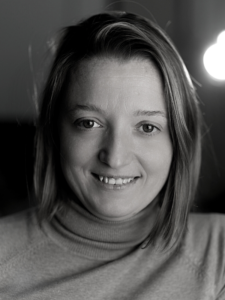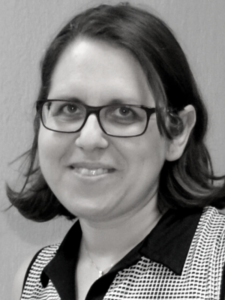
FENS Friday webinar: Brain development and neuropsychiatric disorders
01 May 2021
FENS News
The webinar Brain development and neuropsychiatric disorders will present the state-of-the-art knowledge on the brain’s development and how genetic disturbances and/or environmental influences are thought to underlie several neuropsychiatric disorders. Free registration. Live date: 21 May 2021.
Which role do environmental factors play in the development of the brain?
The brain, including its neurons, synapses and neuronal circuits, continues to develop significantly after birth with environmental factors playing an active role in how the brain acquires adult functions. Disturbances in either the genetic programming and/or the environmental influences is thought to underlie several neuropsychiatric disorders. In this webinar, we will present the state-of-the-art knowledge on:
- Transient developmental circuits that help sensory integration in cortical neural circuits. (Simon Butt)
- The effects of serotonin signalling on brain development and their contribution to the emergence of neuropsychiatric disorders. (Judith Homberg)
- The neuronal physiology that underlies critical periods of brain development. (Kyriaki Sidiropoulou)
- How neuronal circuits are affected in autism spectrum disorder. (Camilla Bellone)
Registration* is open until 20 May 2021
*Free event, but limited number of places.
Date & Time
Friday 21 May, 2 pm – 3 pm CEST
Programme
Welcome & Introduction
Transient developmental circuits that help sensory integration in cortical neural circuits. (Simon Butt, UK)
The effects of serotonin signalling on brain development and their contribution to the emergence of neuropsychiatric disorders. (Judith Homberg, NL)
The neuronal physiology that underlies critical periods of brain development. (Kyriaki Sidiropoulou, GR)
How neuronal circuits are affected in autism spectrum disorder. (Camilla Bellone, CH)
Speakers

Camilla Bellone (CH) | Associate Professor in the Neuroscience department at the University of Geneva
Prof. Camilla Bellone obtained her PhD in 2006 from the University of Geneva and carried out her postdoctoral research in the laboratory of Prof. Roger Nicoll at the University of California, San Francisco (UCSF). In 2008 she moved back to Switzerland to work as a senior postdoc in the lab of Christian Luscher. She was appointed in 2014 assistant professor at the University of Lausanne, and in 2016 she moved to the University of Geneva. Her research focuses on neural circuits underlying social interaction in health and disease.

Simon Butt (UK) | Associate Professor in the Department of Physiology, Anatomy & Genetics at the University of Oxford
Dr Simon Butt is passionate about understanding the role of locally-projecting interneurons in the generation of behaviour, having studied these neurons in both the spinal cord and forebrain. His lab’s current focus is using genetic and physiological approaches to try and resolve how diverse GABAergic interneuron subtypes contribute to emergent sensory perception in the mammalian neocortex. He is happiest when talking about obscure interneuron subtypes, supporting Tottenham Hotspur, and trying to keep up with his three sons.”

Judith Homberg (NL) | Professor in Translational Neuroscience at Radboud University Medical Center
Prof. Judith Homberg did her PhD in 2004 at the VU Medical Center in Amsterdam. Her thesis focused on individual differences in vulnerability to drug addiction. As a postdoc at the Hubrecht Institute in Utrecht, she generated and characterized the first knockout rats worldwide. After obtaining a personal grant, he moved to the Radboud University Medical Center in Nijmegen to establish her research group. Her group focuses on (serotonin-dependent) individual differences in behaviour and susceptibility to neurodevelopmental and stress-related disorders. She has strong expertise in behavioural neuroscience and bridges fundamental and clinical research. She obtained Young Investigator prizes from the European Behavioural Pharmacology Society and the International Behavioural and Neural Genetics Society, and several prestigious national and EU-funded grants.

Kyriaki Sidiropoulou (GR) | Associate Professor of Neurophysiology at the University of Crete
Dr Kyriaki Sidiropoulou investigates the mechanisms of learning and memory in the prefrontal cortex throughout health and disease development. She teaches Animal Physiology and Neurobiology to undergraduate biology students and ‘Neuronal Physiology’ and ‘Cellular mechanisms of learning and memory’ to neuroscience graduate students. She is the current President of the Hellenic Society for Neuroscience, an ordinary member of the European Brain and Behaviour Society, and collaborating researcher at the Institute of Molecular biology and the Biotechnology of the Foundation for Research and Technology Hellas.
About this event
This event is organised by the FENS Committee for Higher Education and Training (CHET) and is part of the FENS Friday series.